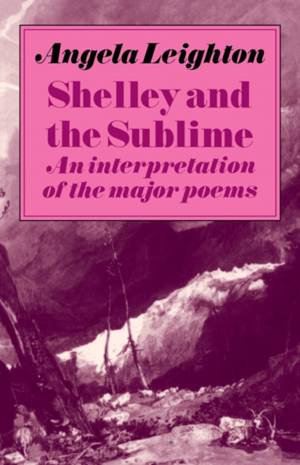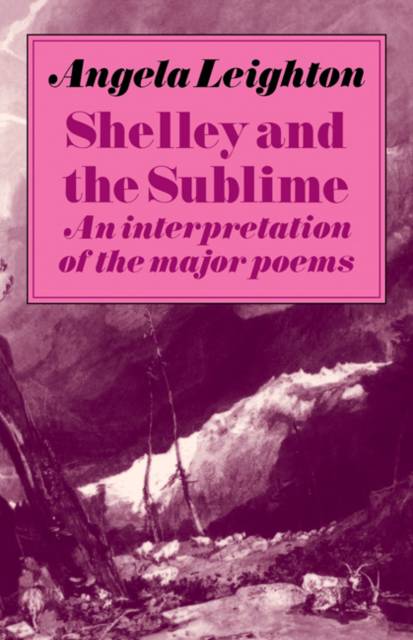
Door een staking bij bpost kan je online bestelling op dit moment iets langer onderweg zijn dan voorzien. Dringend iets nodig? Onze winkels ontvangen jou met open armen!
- Afhalen na 1 uur in een winkel met voorraad
- Gratis thuislevering in België vanaf € 30
- Ruim aanbod met 7 miljoen producten
Door een staking bij bpost kan je online bestelling op dit moment iets langer onderweg zijn dan voorzien. Dringend iets nodig? Onze winkels ontvangen jou met open armen!
- Afhalen na 1 uur in een winkel met voorraad
- Gratis thuislevering in België vanaf € 30
- Ruim aanbod met 7 miljoen producten
Zoeken
Shelley and the Sublime
An Interpretation of the Major Poems
Angela Leighton, Leighton Angela
Paperback | Engels
€ 72,45
+ 144 punten
Omschrijving
This book presents a major reassessment of Shelley's poetry. Whereas other criticism has stressed the philosophical and political concerns of his poetry in isolation, Angela Leighton argues that Shelley's philosophy and politics are presented as problems of poetic utterance and are this inseparable from his aesthetics. The author begins by tracing the origins of Shelley's poetic theory in eighteenth-century ideas of the sublime. She then discusses the effect of such a theory on the language of seven of Shelley's most important poems including 'Hymn to Intellectual Beauty', Prometheus Unbound, 'Ode to the West Wind', 'To a Skylark' and Adonais. In these poems the task of political change is expressed as the prerogative of the inspired poet, who desires to reunite the fallen language of poetry with the original impulse of inspiration that it supplants. This significant contribution to Shelley studies will interest all serious students of English Romantic poetry and aesthetics.
Specificaties
Betrokkenen
- Auteur(s):
- Uitgeverij:
Inhoud
- Aantal bladzijden:
- 208
- Taal:
- Engels
Eigenschappen
- Productcode (EAN):
- 9780521272025
- Verschijningsdatum:
- 30/03/1984
- Uitvoering:
- Paperback
- Formaat:
- Trade paperback (VS)
- Afmetingen:
- 140 mm x 216 mm
- Gewicht:
- 267 g

Alleen bij Standaard Boekhandel
+ 144 punten op je klantenkaart van Standaard Boekhandel
Beoordelingen
We publiceren alleen reviews die voldoen aan de voorwaarden voor reviews. Bekijk onze voorwaarden voor reviews.











